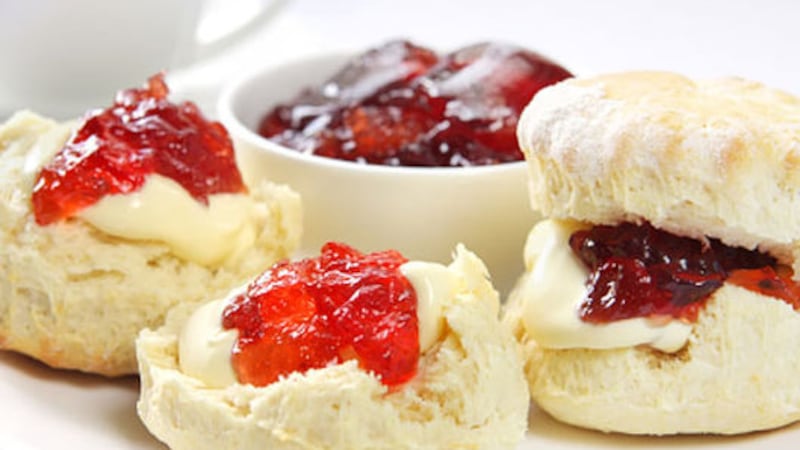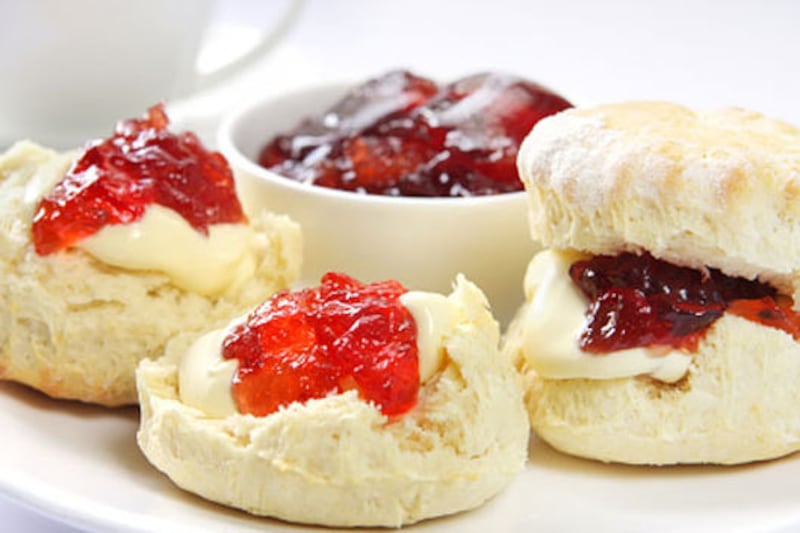THEY are Northern Ireland's go-to accompaniment for a cup of tea, but a large scone can swallow up a third of an adult's recommended daily calories, a survey has found.
The north's 11 district councils sampled a variety of plain, luxury and fruit scones from coffee shops and cafés and found some contain 750 calories - the equivalent of 10 sugar cubes - even before butter and jam are added.
The scone with the highest fat content was a raspberry and white chocolate luxury scone. At 22.7g of fat that is is half an adult's recommended total intake for a day.
Meanwhile, the traditional favourite, a large fruit scone, contained in around 750 calories and 39.2g of sugar.
Read More: World Health Organisation aims to wipe out trans fats worldwide
Emily Latimer, Principal Environmental Health Officer representing the 11 district councils, said the survey found "a wide range of nutritional values of scones and, not surprisingly, highlighted a correlation between larger portion sizes and increased calorie content".
The resulting report produced by the Food Standards Agency (FSA), entitled 'Nutritional Content of Scones', is aimed at helping consumers make informed choices about what they eat.
Currently. 64 per cent of adults and 27 per cent of children aged 2-15 in the north are classified as overweight or obese.
Fionnuala Close, senior dietary health adviser at the FSA said scones were chosen precisely because they are so popular.
Read More: Eating better is simplest form of health insurance
"Typically, our diets contain too much sugar, saturated fat and salt yet, at the same time, we're not consuming enough fruit, vegetables and wholegrain foods," she said.
"As scones tend to be a regular favourite for many across Northern Ireland, we felt it was important to raise awareness that this common snack can contain a greater number of calories than consumers may think.
"The availability of choice, in terms of ingredients and scone size, is an important consideration for consumers and producers alike."
The FSA is working with academics and the food industry on technical guidance to help businesses reformulate recipes and produce baked goods containing less sugar, salt and fat, as well as promoting smaller portion sizes.
"We would encourage consumers to be aware of their recommended daily calorie intake and consider food and drink choices which help them achieve a balanced, healthy diet," Ms Close said.
"To eat well, foods which are high in fat, salt and sugar should be eaten less often and in small amounts."
Other key findings in the report include:
- The range of calories varied widely from 154kcal to 756kcal.
- The portion sizes of scones ranged from 44g to 233g.
- The average scone provided 20g of sugar, which is the equivalent of five sugar cubes.
- The range of sugar per scone varied between 3.1g to 39.2g, with fruit scones generally providing higher sugar levels.





